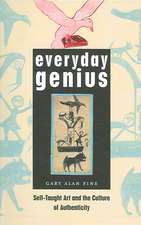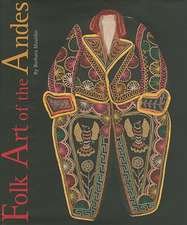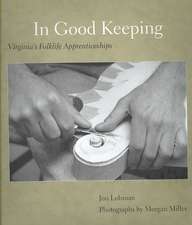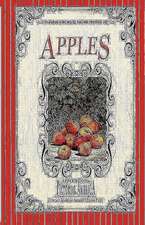Kingdom of Beauty – Mingei and the Politics of Folk Art in Imperial Japan: Asia-Pacific: Culture, Politics, and Society
Autor Kim Brandten Limba Engleză Paperback – 19 iul 2007
"
Kingdom of Beauty" shows that the discovery of "mingei" (folk art) by Japanese intellectuals in the 1920s and 1930s was central to the complex process by which Japan became both a modern nation and an imperial world power. Kim Brandt's account of the mingei movement locates its origins in colonial Korea, where middle-class Japanese artists and collectors discovered that imperialism offered them special opportunities to amass art objects and gain social, cultural, and even political influence. Later, mingei enthusiasts worked with (and against) other groups--such as state officials, fascist ideologues, rival folk art organizations, local artisans, newspaper and magazine editors, and department store managers--to promote their own vision of beautiful prosperity for Japan, Asia, and indeed the world. In tracing the history of mingei activism, Brandt considers not only Yanagi Muneyoshi, Hamada Shōji, Kawai Kanjirō, and other well-known leaders of the folk art movement but also the often overlooked networks of provincial intellectuals, craftspeople, marketers, and shoppers who were just as important to its success. The result of their collective efforts, she makes clear, was the transformation of a once-obscure category of pre-industrial rural artifacts into an icon of modern national style.
Din seria Asia-Pacific: Culture, Politics, and Society
-
 Preț: 158.97 lei
Preț: 158.97 lei -
 Preț: 215.87 lei
Preț: 215.87 lei -
 Preț: 215.33 lei
Preț: 215.33 lei -
 Preț: 260.96 lei
Preț: 260.96 lei -
 Preț: 304.71 lei
Preț: 304.71 lei -
 Preț: 260.59 lei
Preț: 260.59 lei -
 Preț: 302.82 lei
Preț: 302.82 lei -
 Preț: 307.58 lei
Preț: 307.58 lei -
 Preț: 192.98 lei
Preț: 192.98 lei -
 Preț: 258.48 lei
Preț: 258.48 lei -
 Preț: 354.67 lei
Preț: 354.67 lei -
 Preț: 260.37 lei
Preț: 260.37 lei -
 Preț: 260.37 lei
Preț: 260.37 lei -
 Preț: 259.99 lei
Preț: 259.99 lei -
 Preț: 237.71 lei
Preț: 237.71 lei -
 Preț: 265.34 lei
Preț: 265.34 lei -
 Preț: 264.80 lei
Preț: 264.80 lei -
 Preț: 219.59 lei
Preț: 219.59 lei -
 Preț: 263.24 lei
Preț: 263.24 lei -
 Preț: 260.37 lei
Preț: 260.37 lei -
 Preț: 263.45 lei
Preț: 263.45 lei -
 Preț: 304.71 lei
Preț: 304.71 lei -
 Preț: 263.24 lei
Preț: 263.24 lei -
 Preț: 228.81 lei
Preț: 228.81 lei -
 Preț: 265.92 lei
Preț: 265.92 lei -
 Preț: 304.71 lei
Preț: 304.71 lei -
 Preț: 235.70 lei
Preț: 235.70 lei -
 Preț: 261.50 lei
Preț: 261.50 lei -
 Preț: 303.74 lei
Preț: 303.74 lei - 9%
 Preț: 668.31 lei
Preț: 668.31 lei - 9%
 Preț: 666.26 lei
Preț: 666.26 lei -
 Preț: 269.20 lei
Preț: 269.20 lei -
 Preț: 246.08 lei
Preț: 246.08 lei - 9%
 Preț: 668.57 lei
Preț: 668.57 lei
Preț: 220.17 lei
Nou
Puncte Express: 330
Preț estimativ în valută:
42.17€ • 43.44$ • 35.32£
42.17€ • 43.44$ • 35.32£
Carte tipărită la comandă
Livrare economică 24 februarie-10 martie
Preluare comenzi: 021 569.72.76
Specificații
ISBN-13: 9780822340003
ISBN-10: 0822340003
Pagini: 320
Ilustrații: 21 illustrations
Dimensiuni: 162 x 226 x 20 mm
Greutate: 0.45 kg
Editura: MD – Duke University Press
Seria Asia-Pacific: Culture, Politics, and Society
Locul publicării:United States
ISBN-10: 0822340003
Pagini: 320
Ilustrații: 21 illustrations
Dimensiuni: 162 x 226 x 20 mm
Greutate: 0.45 kg
Editura: MD – Duke University Press
Seria Asia-Pacific: Culture, Politics, and Society
Locul publicării:United States
Recenzii
A richly textured, beautifully written, and provocatively argued analysis of the Japanese folk-craft movement, this study sheds light on empire, middle-class material culture, the aesthetics of fascism, and much else common to twentieth-century societies in the throes of dislocating change. A beguiling book on important themes.Carol Gluck, George Sansom Professor of History, Columbia UniversityKingdom of Beauty is first-rate. Kim Brandts analysis is sharp, her organization supple, her writing graceful. Moreover, her synthesis of the imperial with the domesticand of the ideological with the materialmakes the book a model of cultural history.Kären Wigen, author of The Making of a Japanese Periphery, 17501920"In tracing the history of mingei activism, Brandt considers not only the well-known leaders of the folk-art movement, but also the networks involved in its success."ASIAN ART December 2007
Notă biografică
Textul de pe ultima copertă
""Kingdom of Beauty" is first-rate. Kim Brandt's analysis is sharp, her organization supple, her writing graceful. Moreover, her synthesis of the imperial with the domestic--and of the ideological with the material--makes the book a model of cultural history."--Karen Wigen, author of "The Making of a Japanese Periphery, 1750-1920"
Descriere
Shows how the discovery of mingei by Japanese intellectuals in the 1920s and 1930s was central to the complex process by which Japan became both a modern nation and an imperial world power

















